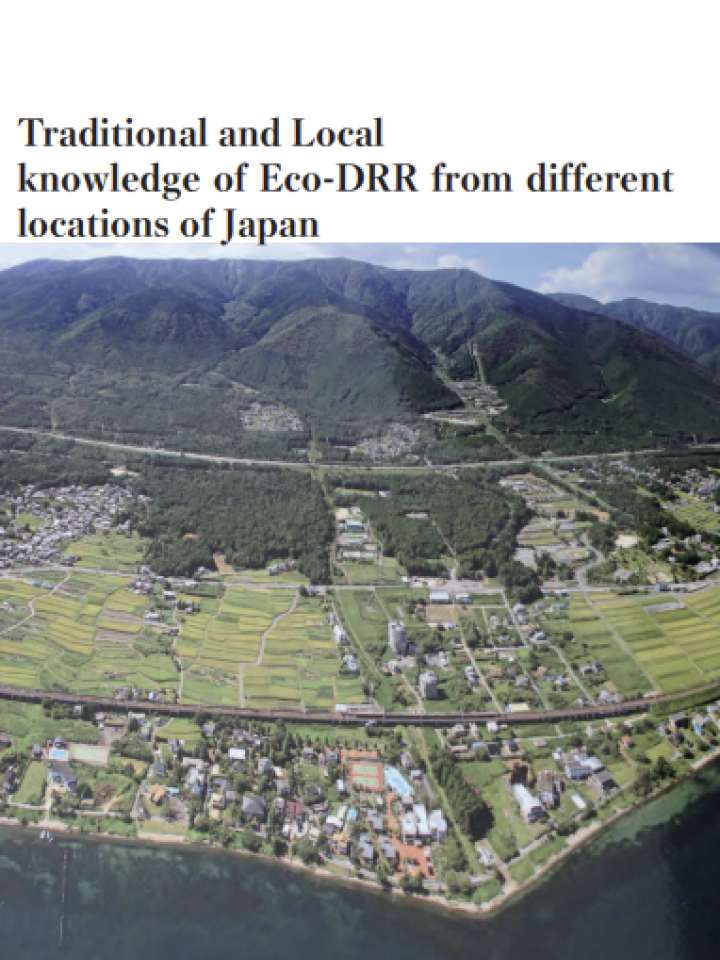Traditional and Local knowledge of Eco-DRR from different locations of Japan
This book is a synopsis of the history of the relationships between people and nature presented in this volume will contribute to building the improved relationships in face of the current serious challenges of climate change and socioeconomic transformation. Traditional responses to disasters have not only been used to avoid disasters and reduce damages, but also to recover and rebuild from disasters. The traditional responses to disasters have been passed down all over Japan, and if examined carefully, we can find them accompanied by the abundant blessings that nature brings us as well. These responses to disasters are based on the deep understanding of the interlinkage between nature's blessings and disasters.
This publication is a part of a five-volume booklet series on "Eco-DRR as Learned from Local History" which was produced as a part of "Research and Social Implementation of Ecosystem-based Disaster Risk Reduction as Climate Change Adaptation in Shrinking Society" implemented by the Research Institute for Humanity and Nature, Kyoto, Japan. The series of booklets, “Eco-DRR as Learned from Local History” emerged from a desire to trigger a reexamination of how our forebears dealt with both the positive and negative aspects of nature. If learning traditional and local knowledge can make people consider the history of the relationship between nature and us, and contribute—even a little—to building better relationships between us amid ongoing climate change and socioeconomic changes, the hard work of the many involved with the publication of this series will be rewarded.
Explore further
